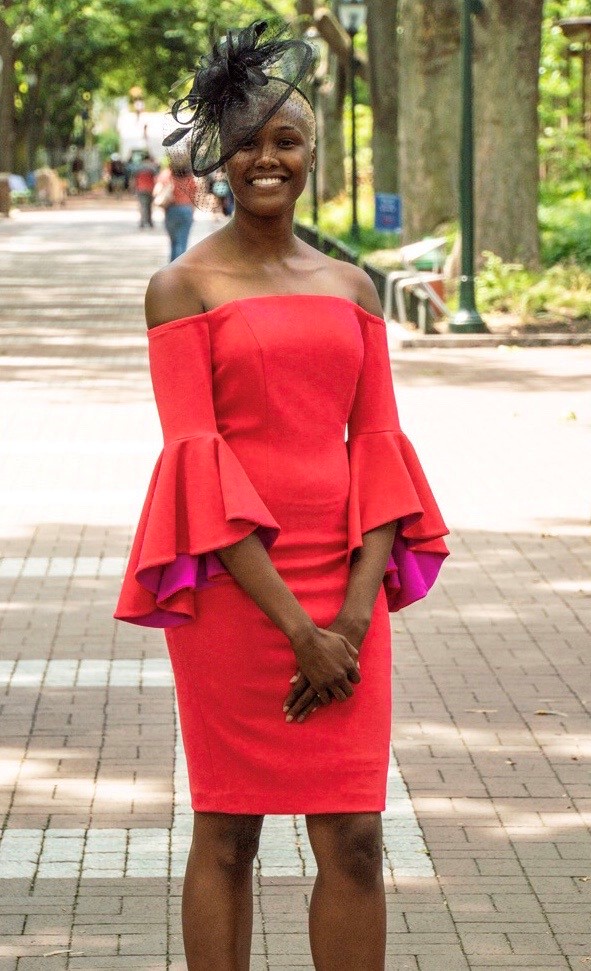Financial Wellness at Penn has developed personal finance tips for students to help them stay on top of financial matters and asked Penn staff members what they wish they had known about finances. This Instagram series, “Note to Past Self,” features advice from administrators across campus.
“People learn new skills and information at different times,” says Paul Richards, director of communications for the Division of Finance. “Students don’t have to have it all figured out right now, and they certainly don’t have to get everything right on the first try.”
It can be even harder to engage in financial planning when the future is uncertain. “We’re trying to approach this from the view that a lot is variable right now,” says Lyndsi Burcham, Financial Wellness Program manager. “Our advice focuses on analyzing your situation, choosing somewhere to start, and knowing that you can’t do everything right now.”
“All students are in uniquely different circumstances,” Burcham says, acknowledging that some students may be financially supporting their families, while others may be relying on family support just when they were about to test their financial independence. “Nearly everyone is managing hardship in some capacity,” she says.
The student-focused tips include staying up to date on financial news, protecting yourself against scams, and taking advantage of Penn and external resources to learn about personal finance. In addition, it’s a good time to talk with family about financial changes and reassess your own personal financial plans, Burcham and Richards say.
Thalia Mangan, an administrative coordinator in the Office of Student Affairs, emphasizes in the “Note to Past Self” campaign that personal financial plans can be as different as people themselves. “I wish I spent more time figuring out a financial system that worked for me instead of attempting to fit a mold,” she says. “I spent so much time being frustrated with myself not being able to be ‘successful’ with my budgeting when in retrospect there are values, beliefs, and emotions attached to finances. Personal finance is personal, and if I accepted that earlier I would have spent more time exploring my beliefs about money and uncovered more about myself that would’ve opened different doors.”
Burcham advises thinking strategically about one-time sources of income that students or their families might receive this spring, such as tax refunds, stimulus checks, emergency aid, or housing and dining credits from the University. If you can afford to meet your immediate needs, some of this money could be put toward outstanding debt or building an uncertainty fund, she says.
In addition, federal student loan payments have been suspended through September 30, and federal interest rates are at 0%. While payments are not required during this time, voluntary payments made during a period of no interest will lower the total amount paid.
“It can be hard to anticipate the future right now, but identify what’s in your control and make a plan,” Richards says. While students and families may be facing additional expenses in some budget categories, there is also a decrease in costs like transportation, personal fitness and grooming, and restaurants. “For example, as grocery expenses go up, eating out at restaurants goes down,” Richards says.
Burcham advises against taking on additional discretionary expenses, however. “It can be very tempting to whip out your credit card and buy things to entertain you,” she says, but “it’s not a time to abandon strategies.”
Sometimes, these strategies include a trade-off. Robin Chakrabarti, an operations coordinator with Career Services, says in the “Note to Past Self” campaign that “back in college, I wish I knew that money isn’t just a number labelling my bank account. I wish I understood the relationship between money, time, energy, and mental health. I now can see that in almost every area of our lives, we exchange the last three for money. Depending on your situation, you may have to expend more energy and time to do things you could outsource if you had more money, which affects your mental health and ultimately, your ability to focus on what is meaningful to you.”
Throughout, Penn staff emphasize the learning process and encourage students to practice self-forgiveness. “Personal finance is a lifelong journey,” Richards says. “Nobody’s perfect.”










